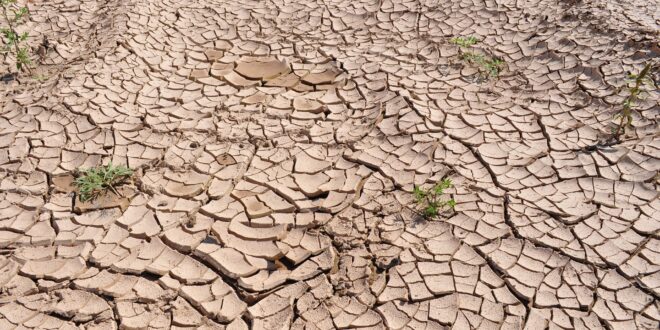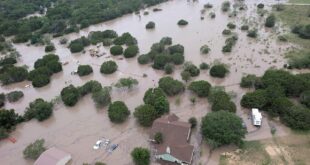by Joseph Hammond
ADDIS ABABA, Ethiopia — As another year of drought looms in Somalia and famine stalks many rural communities, the prayers for rain have already begun.
Horn of Africa faith-based organizations are increasingly playing a prominent role in responding to a potentially massive famine that has received little attention.
“Salāt al-istisqah” or the prayer for rain, is a long-established part of the Islamic tradition and one to which desperate Somalians are increasingly turning.
READ MORE from Joseph Hammond, on anti-terrorist militias in Burkina Faso.
“Islamic organizations are taking a prominent role with the public prayers for rain as well as advising people to avoid the haram so as not to provoke the anger of God,” said Issa Mohamed Hussien, a Mogadishu-based activist and consultant.
Hussien notes that prayers for rain are increasingly organized by local Sufi groups, including the Qadiriyyah, the Salihiyyah and the Ahmadiyya sects, the latter of which shares links with the Libya-centric Senussi movement and is not to be confused with Ahmadiyya of South Asia.
A famine crisis looms
The Horn of Africa faces a looming famine crisis that could cause the deaths of tens of thousands, according to government officials and international aid workers who spoke to ReligionUnplugged.com during a reporting trip to the region. Those concerns are beginning to reach faith organizations in the United States well.
“Food security is also a concern as the drought is causing families to lose livestock used for food and livelihoods,” said the Evangelical Lutheran Church in America in a post on its website. “In some areas, men are moving their livestock herds to look for water and grazing elsewhere, leaving women and children behind to fend for themselves.”
Indeed, according to the U.N. Food and Agriculture Organization, over 9 million animals have died as a result of the famine so far. This year, if the rains fail, there is a greater expectation that starvation could result. Furthermore, Sudan, South Sudan and Ethiopia are facing historic inflationary pressures, according to a report last year from the World Food Progam, which will amplify the impact of the drought.
Some projections suggest the drought is the worst in the region in decades. A 2011-2012 famine in the region claimed between 50,000 and 250,000 lives, according to various estimates, mostly in Somalia.
The international response to that famine was complicated by a number of geopolitical factors — including U.S. restrictions meant to prevent such aid from going to the al-Qaida-linked rebels complicated humanitarian assistance, though the administration of former President Barrack Obama relaxed some sanctions in late 2011 in response to the crisis.
Grain drain by Russia’s invasion of Ukraine
This year the impact of Russia’s illegal invasion of Ukraine and its corresponding disruption of the global grain trade is being profoundly felt. Global humanitarian aid is also disrupted by the recent series of earthquakes in Syria and Turkey that have left 1.5 million people without homes and many without food.
“While it is obvious that geopolitical (issues) are complicating the situation, it is important for humanitarian organizations to continue to play a prominent role,” said Ambassador Salah S. Hammad, a senior human rights expert at the African Union. “In particular, faith-based organizations may be less hindered by such factors and play a critical role.”
Political challenges within the Horn of Africa and the Red Sea region are also complicating the situation within Ethiopia. According to data compiled by the United Nations Human Rights Council in January, there are some 4.5 million refugees in the Horn of Africa region and an additional 11.6 million internally displace people.
“We are facing one of (the most) critical humanitarian (crises) Africa has seen in 40 years, ravaging nations and leading to massive internal displacement, in particular in Somalia, and over 100,000 refugees have crossed borders in seeking aid,” said Mohamed Abdi Affey the UNHCR’s special envoy for the Horn of Africa at the Riyadh International Humanitarian Forum 2023.

The view from Addis Ababa
On the outskirts of Addis Ababa, Ethiopia, Yohannese Getachew, who heads communications for the Consortium of Christian Relief and Development Associations sits in the modest cafeteria of his organization. The CCRDA has the support of over 300 faith-based organizations in Ethiopia and beyond. Its staff members worry about what the coming months may bring to Ethiopia and the wider region.
Getachew muses that the portions served at meals everywhere are getting smaller even though the Ethiopian capital has in the past been spared the ravages of famine. His organization, in fact, has its origins in response to the 1973 to 1974 famine in Ethiopia, which historians argue contributed to the fall of Ethiopian Emperor Haile Selassie and a communist coup in the country.
In the Ethiopian context, many aid organizations are already hard-pressed, given the recent conflict with Tigrinya separatists and insurgencies elsewhere.
“Faith organizations, such as ours, who have been working in the region for decades understand the issues here and the necessary response,” Getachew said. “If the issue receives the attention it deserves, the aid will be forthcoming. What we really need, though, is partners who will think long-term to develop sustainable solutions to the (food security) issues we face here.”
Joseph Hammond is a former Fulbright fellow and journalist who has reported extensively from Africa, Eurasia and the Middle East.
This article first appeared in Religion Unplugged.
 Soldier of Fortune Magazine The Journal of Professional Adventurers
Soldier of Fortune Magazine The Journal of Professional Adventurers






